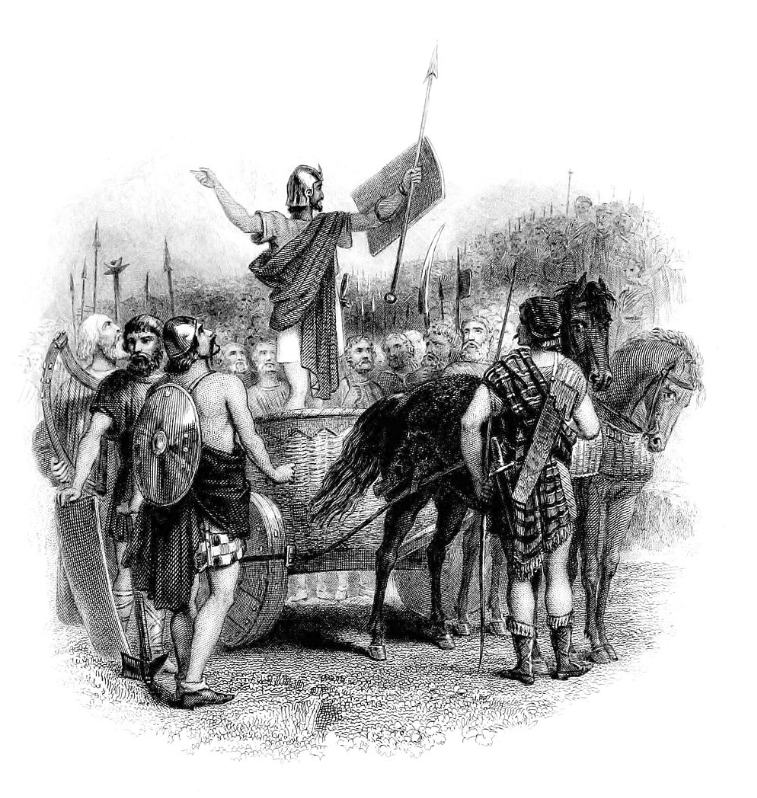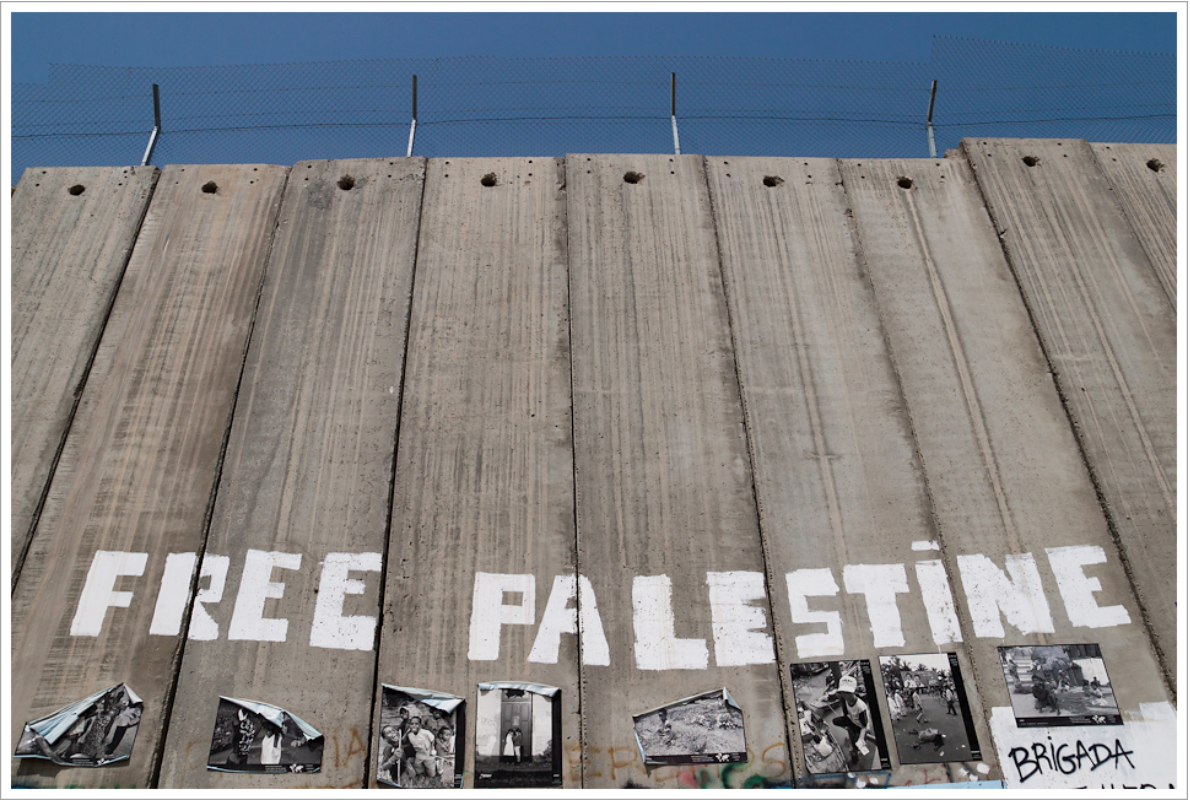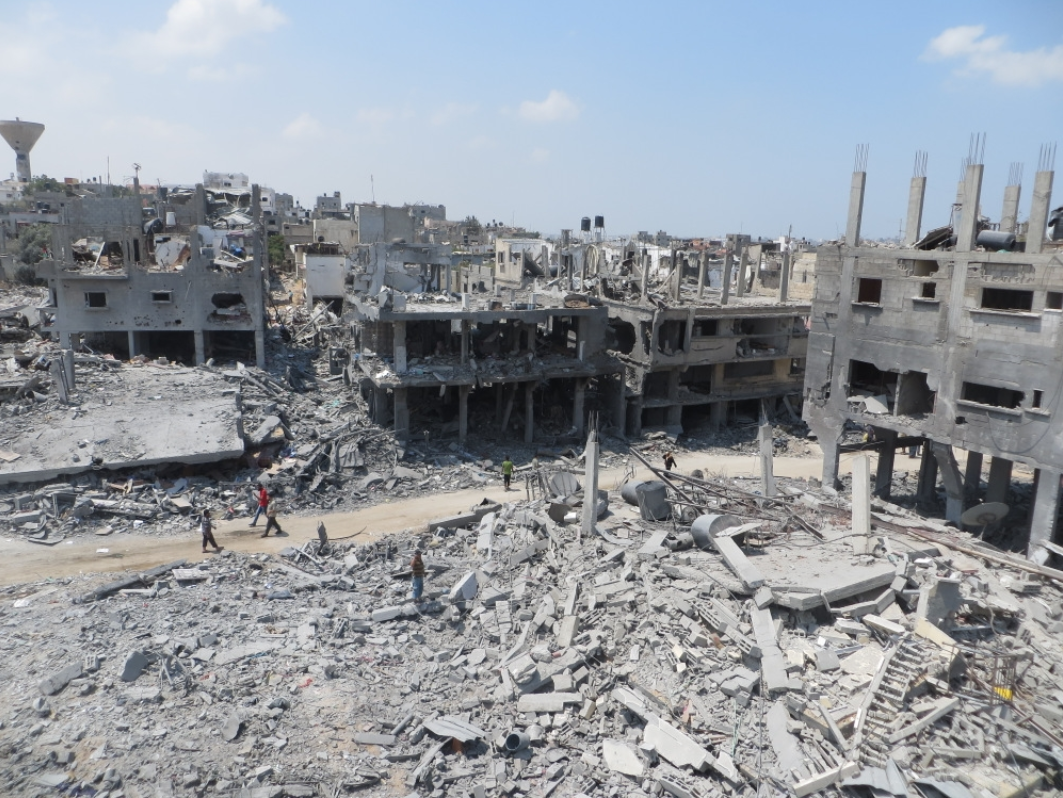‘They Make a Desert….’: Tacitus, Palestine and the Logic of Liberal Colonialism
From The Pictorial History of Scotland from the Roman Invasion to the close of the Jacobite Rebellion. A.D. 79-1646, (London, 1859)
Since October 7th, 2023, over 30,000 Palestinians have been killed during Israel’s attack on Gaza, the WHO is reporting that Northern Gaza is facing imminent famine, and that the rest of the Strip is also at risk of famine with half of the population of Gaza (1.11 million) facing catastrophic food security and the entire population of Gaza facing high levels of acute food insecurity.
The UN Special Rapporteur for the Occupied Palestinian Territories has told the UN Human Rights Council that there are ‘reasonable grounds to believe that the threshold indicating the commission of the crime of genocide has been met’. Gaza has been reduced to rubble, the latest pictures from the Al-Shifa hospital testament to the brutality of Israel’s genocidal offensive against the Palestinian people. This undeniably genocidal offensive is not only restricted to collective punishment and mass murder but has encompassed the destruction of Palestine’s universities and the destruction and looting of Palestine’s heritage and history. The Israeli state’s genocide is designed to not only murder and displace the Palestinian people, but to destroy that which gives meaning to their lives as well; their cultural heritage, cultural memory, their social spaces and their centres of knowledge.
Border wall in Palestine https://www.flickr.com/photos/libertinus/8236191472/
Throughout it all, the Israeli government has made no bones about how it views the Palestinian people. The International Court of Justice case brought against Israel by South Africa meticulously details the actions that the Israeli state has undertaken, and the Law for Palestine has a database of over 500 quotes from Israeli politicians admitting candidly that the ultimate aim is the destruction of Gaza and the mass murder and displacement of the Palestinian people from their homes. Several politicians have made comments to the effect that peace can only be established through the complete destruction of Palestine, and that peace in the Middle East necessitates the genocide of the Palestinian people.
Hearing and reading these comments, I was put in the mind of Calgacus, the chieftain who fought at Mons Graupius and is named in Tacitus’ Agricola, the account of his father-in-law’s campaigns in Roman Britain. Calgacus gives a famous speech to rally his troops before the battle, in which he declares that they will resist the Romans’ desire to enslave them, ending with the infamous quote, 'They plunder, they butcher, they ravish, and call it by the lying name of 'empire'. They make a desert and call it peace'. Now this is most likely Tacitus’ own feelings ventriloquised through Calgacus, related to how Tacitus understands what he views as the moral degradation of the Roman Empire. In another famous passage, Tacitus denounces the elite Britons who took on the trappings of Roman culture, acidly remarking that what they called civilisation ‘was but a part of their servitude’.
"They make a desert and call it peace". Beit Hanoun region of Gaza in August 2014, after Israeli bombardments.
One can read these two passages as Tacitus’ indictment of Roman imperialism, but a closer read of the second passage demonstrates a more complicated picture. Tacitus places the blame of this enslavement at the feet of the Britons as opposed to his uncle, or even the wider system. The hidden assumption is that Tacitus accepts that the system is rotten, but that somehow the Britons are still responsible, because they should have known better. Anyone who has been online during the past several months will have encountered this justification everywhere regarding the genocide, that the Palestinians are themselves responsible for their own plight.
Tacitus’ own critiques of the Roman Empire also mirror the increasingly queasy responses by liberal commentators who have witnessed the truly horrific scale of destruction in Palestine. However, both suffer from a profound ideological ignorance. Tacitus is not critiquing Roman imperialism, but the specific form of Roman imperialism which he associates with the moral vacuity of the imperial political system, which he contrasts unfavourably with the Republican system which is sympathetically portrayed through his father-in-law, Agricola (the ideal Republican man). Tacitus is rather nostalgic, pining for a republican form of Roman rule, where, in his mind, things were done properly. This is of course nonsense. The Republican system that Tacitus yearns for fought three wars with Carthage before wiping it off all subsequent maps, conquered Greece, Gaul and the Near East, and regularly fought with the Latin communities criss-crossing Italy, all for the glory of a triumph. The Roman conquest of Britain is no different to any of these conquests. Indeed, this is the logical endpoint of the imperial process enacted during the Later Roman Republic. Tacitus isn’t objecting to colonialism per se, just the way in which it was enacted and who was conducting the colonial projects.
This is no different to how liberal politicians and commentators have approached the current genocide in Gaza (apart from not calling it a genocide). They have objected to the ferocity and brutality of the current round of violence against the Palestinian people as though this is an aberration of the state of Israel’s policy, without understanding that this has always been the endpoint of Israel’s project of settler colonialism: the complete eradication of the Palestinian people from their homeland. To divorce the current war against the Palestinians from the 76 years of the Nakba, through the Six Day War, to the past 16 years of what the Human Rights Watch has called an ‘open air prison’ is to do what Tacitus did with regards to Roman Imperialism: to object to it not on moral or ethical grounds, but to object to it as a matter of aesthetic and taste.
Israeli soldiers opposite Palestinian protesters in the strip during the First Intifada in 1987.
About the author
Sahal Abdi has completed an undergraduate and master's degree in Archaeology and Ancient History at the University of Leicester, and recently passed his PhD viva in Roman Archaeology, exploring the nature and impact of Roman Imperialism on the rural communities of Southern Roman Britain. His principal research interest is the nature and impact of Roman Imperialism on all forms of social relations.





